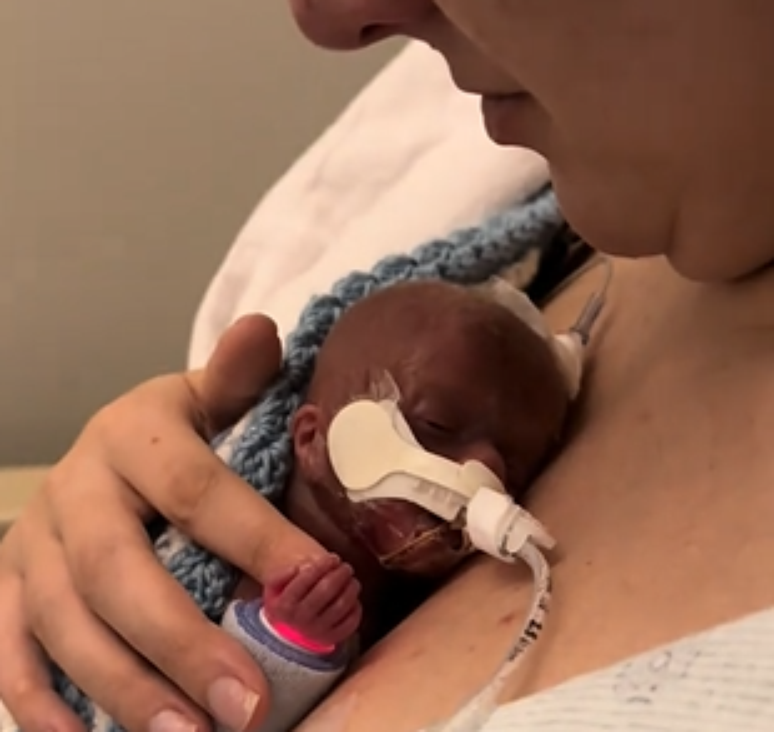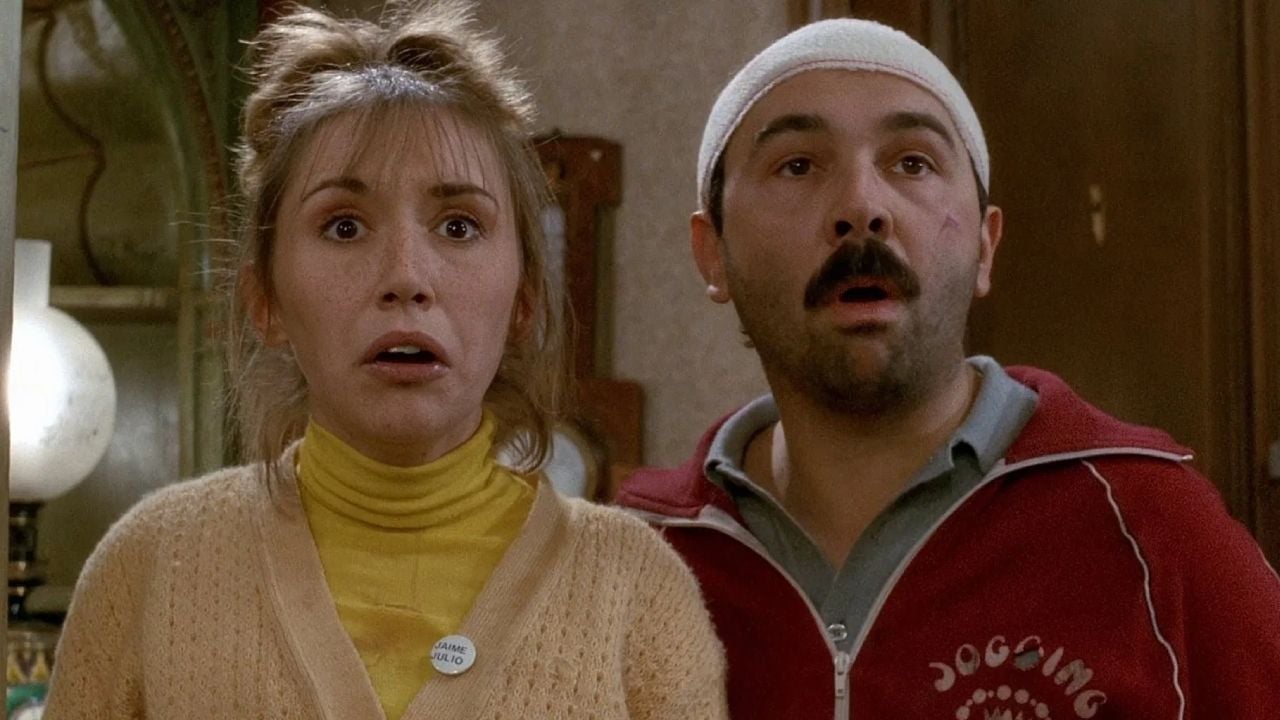Egg freezing is a fertility preservation strategy for women who have decided to postpone pregnancy
Actress Carla Diaz revealed that, due to her strong desire to become a mother, she froze her eggs to preserve her fertility. “There’s one dream, in particular, that I haven’t achieved yet and I would really like to achieve. And that’s what I want to talk about. One of my desires is to be a mother. It’s a dream of mine. I don’t do it.” I know when and how it will be, but, trying to make this wish come true, I went through the egg freezing process! And I discovered a world through contact with industry experts,” said the 33-year-old actress.
And, in fact, egg freezing is one of the best fertility preservation strategies for women who have decided to postpone pregnancy for personal, emotional, financial or professional reasons, after all, age is a predominant factor when it comes to fertility .
“The decline in female fertility after the age of 30 and more markedly after the age of 35 is due to the fact that women are already born with the entire stock of eggs that they will need throughout their reproductive life and, over time, a decrease in the quantity and quality of eggs, with more genetic errors, which make pregnancy difficult and increase the risk of spontaneous abortions,” explains Rodrigo Rosa, specialist in human reproduction and clinical director of the Clínica Mater Prime, in São Paulo.
How does the technique work?
“Cryopreservation is a freezing technique that can be performed on eggs, ovarian tissue, sperm and embryos. At a temperature of -196ºC, these organisms keep their metabolism completely inactive, while preserving their potential for development and vitality. Many couples need to preserve their gametes because they are faced with the immediate impossibility of motherhood or fatherhood, either by choice or by adverse circumstances,” says the doctor.
“Although sperm and embryos are easy to freeze, the egg is the largest cell in the human body and contains a large amount of water. When frozen, ice crystals form which can destroy the cell. Over the years we have learned that we need to dehydrate the egg and replace the water with antifreeze before freezing to avoid the formation of ice crystals,” she adds.
Who should consider egg freezing?
“Egg freezing can be beneficial for a number of reasons for women who want to preserve their fertility for the future, including: medical reasons, such as those diagnosed with cancer or endometriosis, which may negatively affect the ability to remain pregnant; women who want or need to delay pregnancy to pursue educational, professional, or other personal goals; or for women with a family history of early menopause. Some forms of early menopause (premature ovarian failure) are genetically linked. Freezing eggs offers the possibility of preserving them before they run out,” explains the expert.
What is the best age to freeze eggs?
“The younger the woman who freezes, the greater the chance that the egg will produce a baby. There is therefore no age that contraindicates freezing, but ideally it should be carried out by the age of 35, as this way the chances of success are higher. But it is possible to freeze eggs up to 41 or 42 years old. After the age of 43, the likelihood of the egg producing a child is greatly reduced. It’s not impossible, but perhaps the cost-benefit ratio is no longer worth it. So, ideally, the procedure should be performed until the age of 35. But the saying “better late than later” is true. For example, for women who are already 39 years old and do not plan to become pregnant in the near term, it is better to freeze eggs as soon as possible. It is better to have a 15-20% chance of having a baby than to sit out the time and, when there is a possibility of pregnancy at 42, 43 or 45, have done nothing and end up with a 1% chance of have a baby. pregnancy. In short, the ideal is to freeze your eggs until the age of 35, but any woman who wishes to become pregnant long-term is advised to freeze her eggs even if she is older, up to the age of 43. After the age of 44 it is no longer advisable,” explains the expert.
What does egg freezing involve?
“To retrieve eggs for freezing, the patient follows the same hormone injection process as in IVF. The only difference is that after the eggs are retrieved, they are frozen for a period of time before being thawed, fertilized, and transferred to the uterus as embryos. It takes approximately three weeks to complete the egg freezing cycle and is consistent with the early stages of the IVF process, including: one to two weeks of birth control pills to temporarily turn off natural hormones (this step can be skipped if urgent, such as before cancer therapy); 9 to 10 days of hormone injections to stimulate the ovaries and mature more eggs. Once the eggs have matured properly, they are removed with a needle inserted into the vagina under ultrasound guidance. This procedure is performed under intravenous sedation and is not painful. The eggs are frozen immediately,” explains Rodrigo.
“When the patient is ready to attempt pregnancy – several years may have passed – the eggs are thawed, injected with a single sperm to achieve fertilization and transferred to the uterus as embryos. Importantly, according to the recent Resolution No. 2,294 of the Federal Council of Medicine, regarding cryopreservation, or freezing, the total number of embryos generated in the laboratory cannot exceed eight, whereas previously no such limitation existed”, explains the doctor.
How long can eggs stay frozen?
“Based on the scientific evidence relating to pregnancy with frozen embryos – in one case the embryo was frozen for 27 years – we are confident that long-term storage of frozen eggs does not lead to any decrease in quality,” explains the doctor.
What is the success rate after thawing?
“Egg thawing rates of 75% and fertilization rates of 75% are expected in women up to 38 years of age. Therefore, for 10 frozen eggs, seven are expected to survive the thaw and five or six will fertilize and become embryos. Three to four embryos are normally transferred in women up to 38 years of age. Therefore, it is recommended to store 10 eggs for each pregnancy attempt. Most women aged 38 and under can expect to collect 10 to 20 eggs per cycle,” Rodrigo points out.
What if I am over 38?
“Expectations are that pregnancy rates from frozen eggs will depend on the age of the woman when she freezes her eggs, but will not be affected by the age at which she resumes using them. Therefore, the chance of future pregnancy in women over 38 years of age at the time of freezing is likely lower than that seen in younger women. To date, there are few reports of pregnancies in women over 38 from frozen eggs. This is mainly due to the lower age limits in egg freezing studies and the relatively low number of women who have resumed using frozen eggs so far.”
Is egg freezing safe?
“The largest published study of more than 900 babies born from frozen eggs showed no increase in the rate of birth defects compared to the general population. Additionally, the results of one study showed no increased rates of chromosomal defects among embryos derived from frozen oocytes compared to embryos derived from fresh oocytes. In 2014, a new study showed that pregnancy complications did not increase after egg freezing. Furthermore, more than 300,000 children have been born worldwide from frozen embryos using mainly slow-freezing cryopreservation techniques, without any increase in congenital defects,” he points out.
What else has changed in recent years?
“Today it is also possible to select the best embryos to implant in the uterus through genetic tests. Additionally, embryos can be grown in the laboratory to later stages, which ensures a greater chance of survival inside the uterus. Through an assertive choice, the chances of pregnancy are much greater and fewer embryos need to be implanted in the uterus, which reduces the risk of having more children,” concludes Rodrigo.
inspires transformation in the world of work, in business, in society. Compasso, a content and connection agency, is born.
Source: Terra
Ben Stock is a lifestyle journalist and author at Gossipify. He writes about topics such as health, wellness, travel, food and home decor. He provides practical advice and inspiration to improve well-being, keeps readers up to date with latest lifestyle news and trends, known for his engaging writing style, in-depth analysis and unique perspectives.









